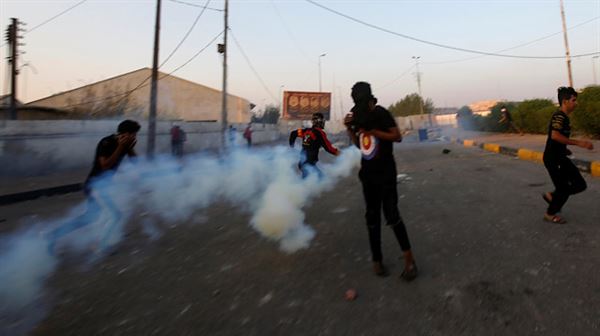Human Rights Watch (HRW) accused the Iraqi security forces of firing tear gas canisters directly at protesters' heads which led to the death of 16 pro
Human Rights Watch (HRW) accused the Iraqi security forces of firing tear gas canisters directly at protesters’ heads which led to the death of 16 protesters since Oct. 25.
“Security forces have fired tear gas cartridges directly at protesters in Baghdad, Iraq on numerous occasions since protests resumed on October 25, 2019, killing at least 16,” according to a report by HRW on Friday.
The organization also said the security forces killed at least 100 protesters since the anti-government protests escalated on Oct. 25.
“The high death toll includes people who took direct hits to the head from tear gas cartridges, in numbers that suggest a gruesome pattern rather than isolated accidents,” said Sarah Leah Whitson, Middle East director at Human Rights Watch.
“With the death toll now at over 100, all of Iraq’s global partners should be unequivocal in their condemnation,” she added.
The organization also said the security forces are heavily relying on tear gas in Baghdad along with using live ammunition.
“Since the protests began, senior government officials have forbidden medical staff from sharing information on the dead and injured with any sources outside the Health Ministry,” the organization said.
“Iraqi authorities should not get a free pass for misusing tear gas as a lethal weapon instead of a crowd dispersal method,” Whitson said.
At least 270 people have been killed and thousands injured in the anti-government demonstrations throughout Iraq since Oct. 1, according to Iraqi sources.
Popular anger has been simmering in Iraq in recent years due to rising unemployment and rampant corruption. Many residents have limited access to basic services such as electricity and clean water.
Iraq’s youth unemployment is around 25% according to World Bank figures. It also ranks 12th most corrupt country in the world, according to several organizations that monitor transparency.
